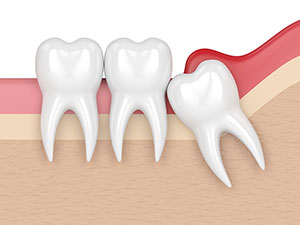What is Gum Disease?
Gum disease describes bleeding, red, or swollen gums. It begins with hard and soft deposits on the surfaces of the teeth. If left untreated, bacterial build-up called plaque collects at the gum line. This plaque buildup eventually hardens into tartar or calculus.

When poor oral care is present, bacteria cause inflammation of the gums (gum disease / gingivitis). Over time, these bacteria can spread into the bone, resulting in a condition called periodontitis. Left treated, periodontal disease leads to the complete destruction of the tooth’s supporting tissues, abscesses and, ultimately, loss of the tooth.
Signs and Symptoms (Source: The Canadian Dental Hygienists Association)
● Red, swollen or tender gums
● Bleeding while brushing or flossing
● Gums that pull away from the teeth
● Persistent bad breath
● Loose or separating teeth
● A change in the way your teeth fit together








 Gingivitis is commonly known as gum disease and affects gum tissue. Gingivitis is reversible with regular oral care. However, untreated gingivitis progresses to periodontitis. Periodontitis involves the permanent loss of gum and bone tissue in the mouth. Additionally, untreated periodontitis causes tooth loss.
Gingivitis is commonly known as gum disease and affects gum tissue. Gingivitis is reversible with regular oral care. However, untreated gingivitis progresses to periodontitis. Periodontitis involves the permanent loss of gum and bone tissue in the mouth. Additionally, untreated periodontitis causes tooth loss. Those living with diabetes know the importance of controlling their blood glucose levels. Diabetic patients often alter many areas of their life to control their diabetes. For example, areas such as their diet, become more active, and take medication to help control their blood glucose. However, having good oral health is another factor that can help with managing diabetes.
Those living with diabetes know the importance of controlling their blood glucose levels. Diabetic patients often alter many areas of their life to control their diabetes. For example, areas such as their diet, become more active, and take medication to help control their blood glucose. However, having good oral health is another factor that can help with managing diabetes.